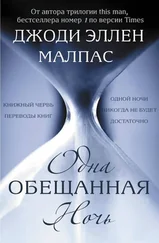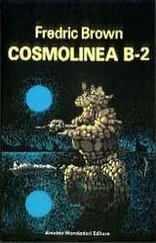Эллен Глазгоу - Barren Ground
Здесь есть возможность читать онлайн «Эллен Глазгоу - Barren Ground» весь текст электронной книги совершенно бесплатно (целиком полную версию без сокращений). В некоторых случаях можно слушать аудио, скачать через торрент в формате fb2 и присутствует краткое содержание. Жанр: Классическая проза, на английском языке. Описание произведения, (предисловие) а так же отзывы посетителей доступны на портале библиотеки ЛибКат.
- Название:Barren Ground
- Автор:
- Жанр:
- Год:неизвестен
- ISBN:нет данных
- Рейтинг книги:3 / 5. Голосов: 1
-
Избранное:Добавить в избранное
- Отзывы:
-
Ваша оценка:
- 60
- 1
- 2
- 3
- 4
- 5
Barren Ground: краткое содержание, описание и аннотация
Предлагаем к чтению аннотацию, описание, краткое содержание или предисловие (зависит от того, что написал сам автор книги «Barren Ground»). Если вы не нашли необходимую информацию о книге — напишите в комментариях, мы постараемся отыскать её.
Barren Ground — читать онлайн бесплатно полную книгу (весь текст) целиком
Ниже представлен текст книги, разбитый по страницам. Система сохранения места последней прочитанной страницы, позволяет с удобством читать онлайн бесплатно книгу «Barren Ground», без необходимости каждый раз заново искать на чём Вы остановились. Поставьте закладку, и сможете в любой момент перейти на страницу, на которой закончили чтение.
Интервал:
Закладка:
For an instant Dorinda held her breath while a wave of dull sickness swept over her. At that moment she realized that the innocence of her girlhood, the ingenuous belief that love brought happiness, had departed for ever. She was in the thick of life, and the thick of life meant not peace but a sword in the heart. Though she scarcely knew Geneva Ellgood, she felt that they were enemies. It was not fair, she told herself passionately, that one girl should have everything and one nothing! A primitive impulse struggled like some fierce invader in her mind, among the orderly instincts and inherited habits of thought. She was startled; she was frightened; but she was defiant. In a flash the knowledge came to her that habit and duty and respectability are not the whole of life. Beyond the beaten road in which her ideas and inclinations had moved, she had discovered a virgin wilderness of mystery and terror. While she stood there, listening to the gossip of the dressmaker, the passion that abides at the heart of all desperation inflamed her mind. She had learned that love casts its inevitable shadow of pain.
"I want a hat too, Miss Seena," she said quickly. "A white straw hat with a wreath of blue flowers round the crown."
Miss Seena lifted her spectacles to her forehead, and gazed at the girl inquiringly with her small far-sighted eyes. "I always thought you had too much character to care about clothes, Dorinda," she said, "but that jest proves, I reckon, that you never can tell. I s'pose youth is obleeged to break out sooner or later. But it will cost a good deal, I'm afraid. Wreaths are right expensive, now that they're so much worn. Yo' Ma told me the last time I was over thar that you were savin' all you made to help yo' Pa with the farm."
Her glance was mild, for she was not unsympathetic (when was a dressmaker, especially a dressmaker who was at the same time a sentimental spinster, unsympathetic about clothes?) but she wished to feel sure that Dorinda would not regret her extravagance after it was too late.
"You mustn't think that you can keep up with Geneva, honey," she added kindly but indiscreetly. "You're prettier than she is, but her Pa's the richest man anywhar about here, an' I reckon thar ain't much ugliness that money ain't able to cure."
The advice was wholesome, but Dorinda frowned and shook her head stubbornly. The shawl had slipped to her shoulders, and the sunlight, which was struggling through the clouds, brought out a bluish lustre on her black hair. Miss Seena, watching her closely, reflected that hair and eyes like those did not often go together. With this vivid contrast and the high colour in her lips and cheeks the girl appeared almost too conspicuous, the dressmaker decided. "It always seemed to me mo' refined when yo' eyes and hair matched better," she thought, "but I s'pose most men would call her handsome, even if her features ain't so small as they ought to be."
"I'm going to have one nice dress, I don't care what happens," Dorinda was saying. "I don't care what happens," she repeated obstinately. "I've got thirty dollars put away, and I want you to buy that dress and hat if it takes every cent of it. I'm tired of doing without things."
"Well, I don't reckon they will cost that much," returned Miss Seena, after a quick sum in mental arithmetic. "You can buy right nice, double-width nun's veiling for seventy-five cents a yard, and I can get you a dress, I reckon, by real careful cuttin', out of nine yards. The fashion books call for ten, but them New York folks don't need to cut careful. To be sure, these here bell skirts and balloon sleeves take a heap of, goods, but I s'pose you'll want yours jest as stylish as Geneva's?" Since the girl was determined to waste her money, it would be a pity, Miss Seena reflected gently, to spoil the pleasure of her improvidence. After all, you weren't young and good-looking but such a little while!
"I'll do the best I can, honey," she said briskly. "And they'll charge it to me at Brandywine and Plummer's store, so you don't need to bring the money till the first of the month. Thar's the train whistlin' now, and Sister Texanna is waitin' at the track with my basket and things. Don't you worry, I'll get you jest the very prettiest material I can find."
Turning away, the dressmaker hurried with birdlike fluttering steps to the track, where Dorinda saw the stately figure of Miss Texanna standing guard beside an indiscriminate collection of parcels. Miss Texanna, unlike her sisters, had been pretty in her youth, and a dull glamour of forgotten romance still surrounded her. Though she had never married, she had had a lover killed in the war, which, as Miss Tabitha had once remarked, was "almost as good." But Dorinda, while she watched the approaching train, did not think of the three sisters. "I oughtn't to have done it," she said to herself, with a feeling of panic, and then desperately, "Well, I'm going to have one good dress, I don't care what happens!"
A few farmers were taking the early train to town, and Dorinda saw that Geneva Ellgood had driven her father to the station in her little dog-cart with red wheels. She was a plain girl, with a long nose, eyes the colour of Malaga grapes, and a sallow skin which had the greenish tinge of anaemia. Her flaxen hair, which she arranged elaborately, was profuse and beautiful, and her smile, though it lacked brightness, was singularly sweet and appealing.
As the two girls looked at each other, they nodded carelessly; then Geneva leaned forward and held out a slip of paper.
"I wonder if you would mind fixing up this list for me?" she asked in a friendly tone. "I don't like to leave Neddy, and Bob has gone in to see if there are any letters."
Running down the steps, Dorinda took the list from her and glanced over it. "We haven't got the kind of coffee you want," she said. "It was ordered two weeks ago, but it hasn't come yet."
"Well, we'll have to make out with what you have. If you'll wrap up the things, Bob will bring them out to me."
She was a shy girl, gentle and amiable, yet there was a barely perceptible note of condescension in her manner. "Just because she's rich and I'm poor, she thinks she is better than I am," Dorinda thought disdainfully, as she went up the steps.
While she was weighing and measuring the groceries, Bob Ellgood came from the post office (which consisted of a partition, with a window, in one corner of the store) and stopped by the counter to speak to her. He was a heavy, slow-witted young man, kind, temperate, and good-looking in a robust, beefy fashion. Because he was the eldest son of James Ellgood, he was regarded as desirable by the girls in the neighbourhood, and Dorinda remembered that, only a few Sundays ago, she had looked at him in church and asked herself, with a start of expectancy, "What if he should be the right one after all?" She laughed softly over the pure absurdity of the recollection, and a gleam of admiration flickered in the round, marble-like eyes of the young man.
"I hope the Greylocks' steer didn't harm your father's plant beds," he said abruptly.
"No," she shook her head. "I haven't heard that they suffered."
Having weighed the sugar, she was pouring it into a paper bag, and his eyes lingered on the competent way in which her fingers turned down the opening, secured it firmly, and snipped off the end of the string with an expert gesture. Only a week ago his attention would have flattered her, but to-day she had other things to think of, and his admiring oxlike stare made her impatient. Was that the way things always came, after you had stopped wanting them?'
"Well, he ought to have a good crop after the work he's put on those fields," he continued, as she placed the packages in a cracker box and handed them to him over the counter.
She shook her head. "No matter how hard you work it always comes back to the elements in the end. You can't be sure of anything when you have to depend upon the elements for a living."
Читать дальшеИнтервал:
Закладка:
Похожие книги на «Barren Ground»
Представляем Вашему вниманию похожие книги на «Barren Ground» списком для выбора. Мы отобрали схожую по названию и смыслу литературу в надежде предоставить читателям больше вариантов отыскать новые, интересные, ещё непрочитанные произведения.
Обсуждение, отзывы о книге «Barren Ground» и просто собственные мнения читателей. Оставьте ваши комментарии, напишите, что Вы думаете о произведении, его смысле или главных героях. Укажите что конкретно понравилось, а что нет, и почему Вы так считаете.










![Эллен Дедженерес - Кроме шуток [Как полюбить себя, продать дуршлаг дорого, прокачать мозг с помощью телешоу и другие истории от Эллен Дедженерес] [litres]](/books/384873/ellen-dedzheneres-krome-shutok-kak-polyubit-sebya-p-thumb.webp)

